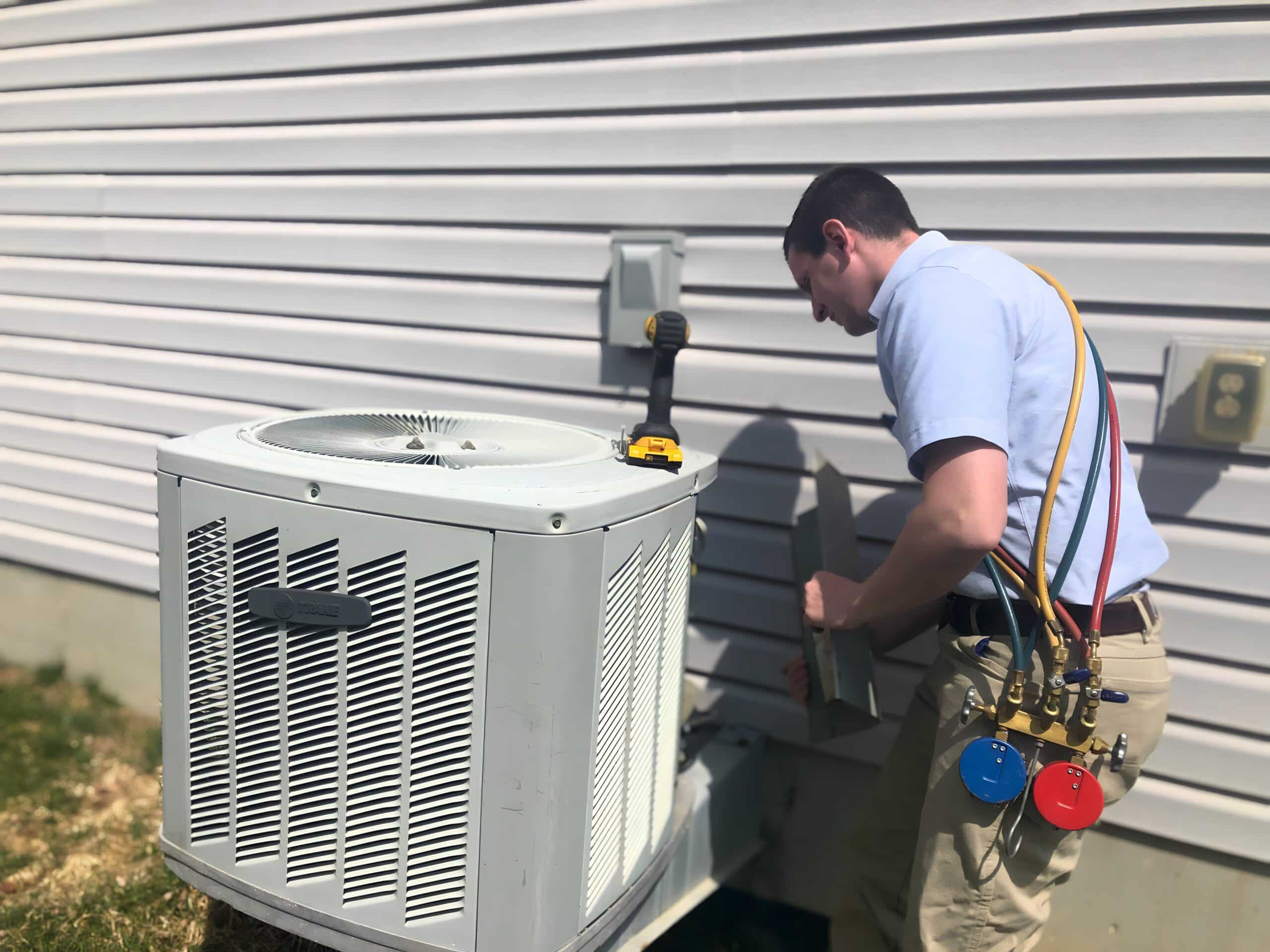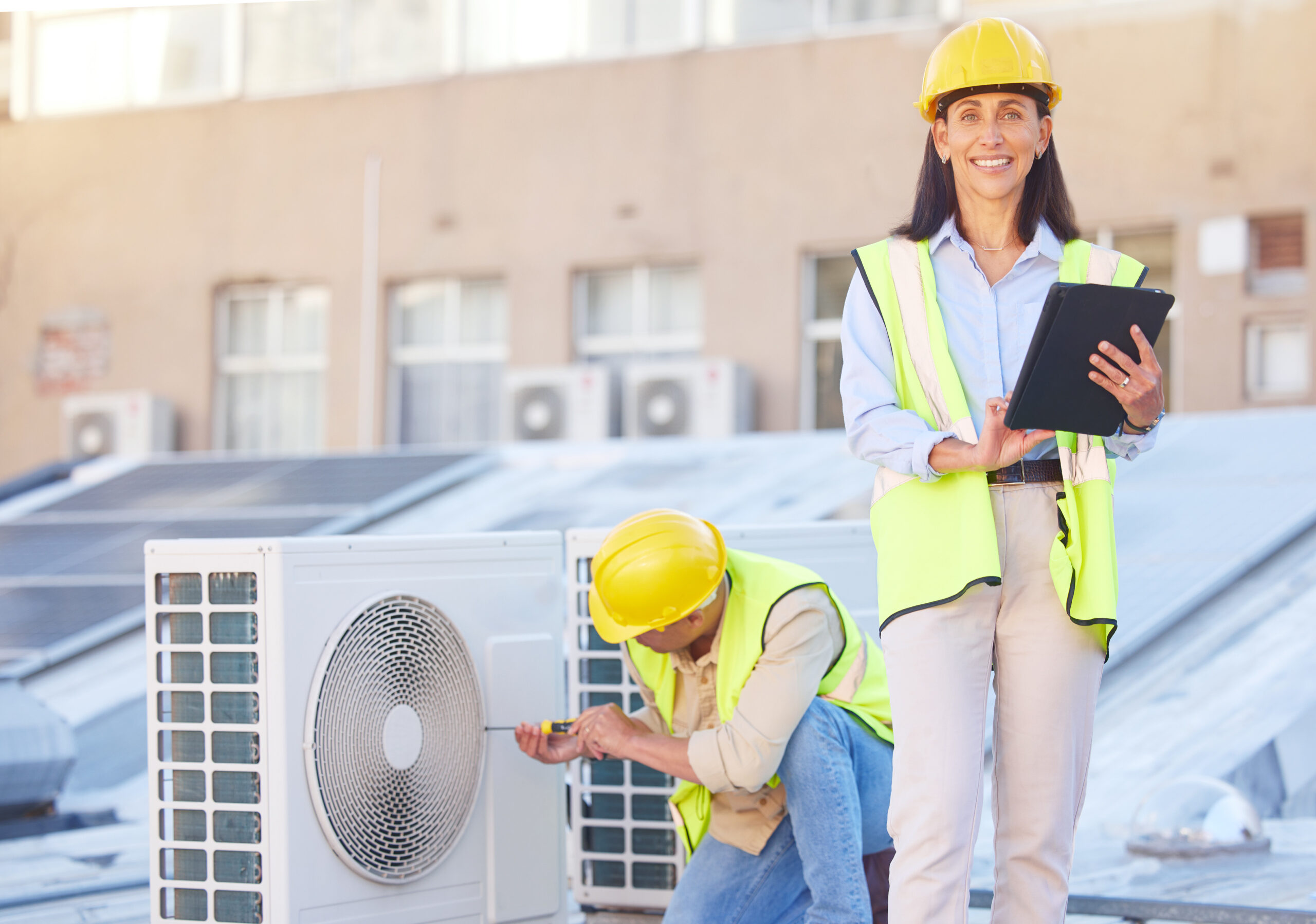Step-by-Step Timeline During a Professional furnace replacement
Step-by-Step Timeline During a Professional furnace replacement
Blog Article
Choosing In Between a Heatpump and Heater: Trick Factors To Consider for Your A/c Requirements
When examining home heating options for a/c requires, the choice between a heatpump and a heater can be complicated. Each system provides unique benefits tailored to specific climates and energy performance goals. Understanding these distinctions is crucial for making an educated selection. Key elements such as installation costs and environmental effect further complicate the option procedure. Which option genuinely aligns with one's convenience and sustainability preferences? The following areas will certainly discover these considerations in information.
Recognizing Heat Pumps: How They Work and Their Advantages
While several property owners take into consideration various home heating options, recognizing just how heat pumps feature and their advantages can greatly influence their choice. Heatpump operate by moving heat as opposed to creating it. In the wintertime, they remove heat from the outdoors air or ground and transfer it inside, while in the summer, they reverse this procedure, cooling the home by getting rid of warm outside. This dual functionality makes them flexible for year-round climate control.One of the primary benefits of warm pumps is their power performance. They use significantly much less electrical energy contrasted to traditional heating unit, potentially resulting in lower utility expenses (heat pump installation ooltewah tn). Additionally, heatpump have a smaller sized carbon impact, making them an eco-friendly choice. They likewise require much less maintenance than traditional systems, adding to lasting expense savings. Generally, comprehending the technicians and benefits of warm pumps can help property owners make informed choices concerning their heating and cooling down demands
Discovering Heating Systems: Kinds, Operation, and Benefits
Heating systems come in different types, consisting of gas, electrical, and oil designs, each with unique functional mechanisms. Comprehending these differences is necessary, as they affect efficiency and home heating performance. In addition, heaters offer countless advantages, such as regular warm outcome and reliability in cooler environments.
Kinds of Furnaces
Heater can differ substantially in design and procedure, with furnaces being a prominent selection among homeowners. There are numerous sorts of furnaces, each utilizing various fuel resources and innovations. Gas heaters prevail, leveraging gas to produce warmth effectively. Electric furnaces, on the various other hand, make use of electric resistance to create warmth, commonly favored for their uncomplicated setup. Oil furnaces, while much less common, work in areas with limited gas gain access to (furnace replacement). Additionally, condensing heaters optimize energy efficiency by reusing and catching exhaust gases. Each type operates with a system of warm exchangers and ductwork to distribute warm air throughout a home. Comprehending the differences in between these furnace types is vital for informed a/c choices
Advantages of Heating systems
For house owners seeking trusted warmth throughout chilly months, the advantages of heaters are considerable. Furnaces give consistent heating, ensuring also temperature levels throughout the home. They are especially effective in extreme cold, commonly surpassing warm pumps in frigid problems. Different kinds, including gas, electric, and oil furnaces, provide adaptability to fulfill diverse needs and preferences.Furnaces likewise often tend to have reduced first setup costs compared to warmth pumps, making them an extra available choice for several. Their durable layout adds to a much longer lifespan, with lots of devices lasting over 15 years with appropriate upkeep. Furthermore, contemporary furnaces are typically furnished with sophisticated modern technology for boosted performance, which can cause lowered power expenses. In general, furnaces remain a reliable choice for reliable home heating.

Energy Effectiveness: Comparing Heat Pumps and Furnaces
When comparing power performance between warm pumps and furnaces, the Seasonal Power Efficiency Proportion (SEER) plays a necessary role in figuring out efficiency. Furthermore, an operational price evaluation reveals the long-lasting economic effects of each system. Comprehending these factors can assist house owners in making notified decisions regarding their heating options.
Seasonal Power Efficiency Ratio
Energy performance plays a vital function in the decision-making procedure in between warmth pumps and furnaces, particularly when taking into consideration the Seasonal Energy Effectiveness Proportion (SEER) This metric procedures the cooling effectiveness of heatpump over a whole cooling period, giving a standardized means to evaluate performance. Greater SEER rankings indicate higher energy efficiency, translating to lower energy usage and minimized utility bills. On the other hand, furnaces are usually evaluated utilizing the Annual Fuel Usage Performance (AFUE) ranking, which mirrors heating effectiveness. When comparing these 2 systems, property owners ought to prioritize SEER scores for heatpump, as they straight impact total energy financial savings and environmental sustainability. An extensive understanding of SEER can especially influence the long-term contentment and cost-effectiveness of the selected cooling and heating service.
Operational Price Analysis
Understanding the operational expenses connected with warm pumps and heating systems is important for property owners reviewing their choices. Heatpump commonly provide higher power efficiency, transforming electric power into warm with very little waste. This results in reduced monthly energy bills, specifically in moderate climates. Alternatively, conventional heaters, specifically gas designs, may have lower ahead of time expenses yet can incur higher functional expenditures over time due to sustain rates and efficiency ratings.Moreover, heat pumps can work as both home heating and cooling systems, possibly minimizing the demand for different cooling and heating systems. While preliminary investments for heatpump might be higher, their long-lasting savings in energy effectiveness can make them an extra economical choice for numerous houses. Careful evaluation of regional energy rates is important to identify the finest choice.
Installment Costs: What to Expect for Each Furnace
Setup prices for heating unit can differ considerably between heat pumps and heating systems, affecting home owners' choices. Heat pumps usually have greater in advance installation costs, usually ranging from $3,500 to $8,000, depending upon the system dimension and complexity of installment. This includes the exterior system, indoor handling system, and required ductwork adjustments. On the other visit this site hand, heaters often tend to have reduced initial expenses, averaging between $2,500 and $6,000, which can be appealing for budget-conscious homeowners. Setup expenses can raise if considerable ductwork is required.Moreover, the choice of fuel kind for heating systems-- natural gas, propane, or electrical-- can also impact installment expenses. While heatpump offer energy performance, their initial investment might deter some purchasers. Ultimately, evaluating installment expenses together with long-lasting savings and effectiveness will certainly help homeowners in making informed decisions regarding their heating unit.
Climate Factors To Consider: Which System Does Much Better in Your Location
Just how do environment conditions affect the performance of home heating systems? The performance of heatpump and heating systems can differ considerably relying on the regional environment. In moderate climates, warmth pumps stand out by successfully transferring heat from the outside air, making them an energy-saving alternative. However, their performance decreases in exceptionally cold temperatures, where they might struggle to draw out adequate heat. On the other hand, heating systems, specifically gas models, supply reliable and consistent heat no matter of exterior click here for more problems, making them preferable in colder regions.In locations that experience milder winters months, warm pumps can run successfully year-round, offering both heating & cooling. On the other hand, regions with rough winters months typically benefit from the toughness of heating systems. Eventually, comprehending the regional environment is vital when choosing in between a warm pump and a heating system, as it directly impacts their operational efficiency and overall performance.
Upkeep Demands: Long-Term Look After Heat Pumps vs. Furnaces
While both heatpump and heaters call for regular upkeep to assure peak performance, their particular requirements and treatment routines differ considerably. Heaters typically need much less frequent focus, with yearly assessments sufficing to examine for gas leaks, clean filters, and assess total performance. Their easier design often permits uncomplicated repairs.In comparison, heatpump demand biannual upkeep as a result of their double role in cooling and heating. This consists of cleaning coils, checking refrigerant degrees, and guaranteeing that both the outside and interior units function at their best. Additionally, heatpump maintenance often includes even more elaborate components, making expert maintenance essential.Neglecting maintenance can result in decreased efficiency and raised energy prices for both systems. Ultimately, house owners should think about these lasting care needs when picking between a heatpump and a heating system, as aggressive maintenance can prolong the life expectancy and performance of either system considerably.
Ecological Impact: Selecting a Sustainable Home Heating Choice
The environmental impact of furnace is a vital assessment for home owners seeking sustainable alternatives. Warmth pumps are usually more energy-efficient than standard heaters, as they transfer warm as opposed to create it, substantially decreasing carbon emissions. By making use of eco-friendly power sources, such as air-source or geothermal warm pumps, house owners can better lessen their ecological footprint.On the other hand, gas heaters produce greenhouse gases and add to air contamination, though they typically give greater warm output. Innovations in modern technology have actually led to the advancement of high-efficiency heaters that minimize emissions.Ultimately, selecting a home heating system involves weighing effectiveness against ecological impact. House owners are urged to assess local energy resources and incentives for eco-friendly systems, ensuring a selection that aligns with both individual convenience and environmental obligation. The decision influences not just immediate convenience yet likewise long-lasting browse this site sustainability and ecological health.
Frequently Asked Concerns
How Much Time Do Warm Pumps and Furnaces Commonly Last?
The life-span of warm pumps usually varies from 15 to twenty years, while heaters can last between 15 to thirty years. Routine upkeep significantly influences their durability and performance in offering home heating options.
Can I Make Use Of a Heatpump in Very Cold Climates?
Heatpump can operate in extremely cool environments, but their performance lessens as temperatures decrease. In such conditions, supplemental heating sources may be needed to keep comfortable indoor temperatures and assure peak efficiency.

What Is the Noise Level of Warmth Pumps Versus Furnaces?
The sound levels of heat pumps and furnaces differ significantly. Generally, heatpump run more silently than conventional heating systems, making them more effective for those conscious appear, while furnaces may generate louder functional noises throughout home heating cycles.
Are Warm Pumps Suitable for Both Heating and Air conditioning?
Heat pumps are indeed ideal for both home heating and cooling (ductless mini splits). They operate by transferring heat, supplying efficient temperature level control year-round, making them a versatile choice for home owners seeking an all-in-one HVAC option
What Size Heater Do I Required for My Home?
Establishing the proper size heater for a home calls for reviewing elements such as square video footage, insulation top quality, local climate, and the home's format. Consulting a professional can assure a precise analysis and perfect convenience. Warmth pumps normally supply higher power effectiveness, transforming electrical power right into heat with very little waste. In modest environments, warm pumps excel by efficiently transferring warm from the outdoors air, making them an energy-saving option. On the other hand, furnaces, especially gas models, give regular and dependable warmth no matter of outdoor problems, making them more suitable in chillier regions.In areas that experience milder winters months, heat pumps can operate successfully year-round, giving both home heating and air conditioning. Heat pumps are usually much more energy-efficient than typical heating systems, as they move heat rather than generate it, substantially reducing carbon exhausts. By making use of sustainable power sources, such as geothermal or air-source warm pumps, home owners can better decrease their eco-friendly footprint.On the various other hand, all-natural gas heating systems discharge greenhouse gases and contribute to air pollution, though they often provide greater heat output.
Report this page